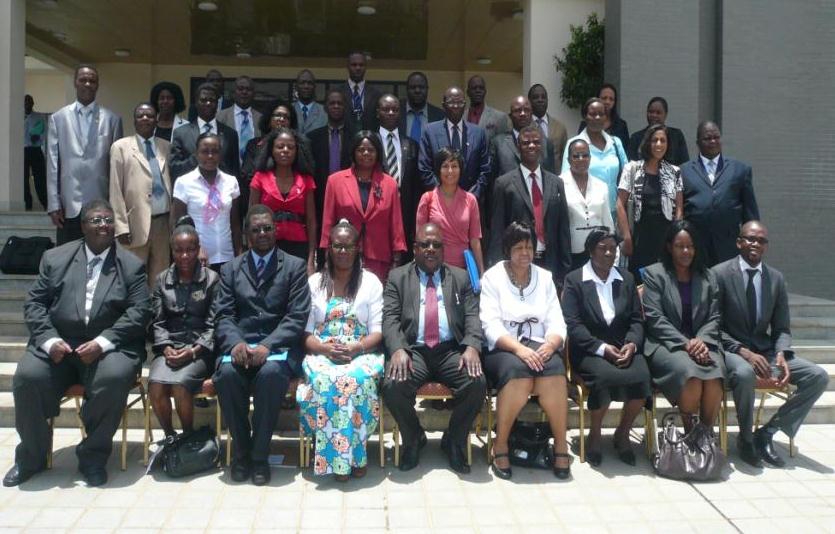The Health Policy Project ended in 2016. Work continued under Health Policy Plus (HP+) until 2022.
NEWS & VIEWS
 |
Malawi’s Parliamentary Committee on Health and Population and development partners meet to discuss the impacts of rapid population growth on socio-economic development. Photo by Tamanda Gomani |
Challenge
With an annual population growth rate of 3.2 percent, Malawi has one of the fastest-growing populations in Africa. Women give birth to an average of nearly six children, which contributes to rapid population growth, as well as increased numbers of new students entering school and young people seeking employment. This rapid pace of growth not only affects families—but poses a substantial burden on Malawi’s government and economy to provide more services. If these trends continue, Malawi will need to approximately triple the number of health care facilities, primary schools, nurses, and teachers over the next 30 years to provide adequate health services and opportunities to gain an education.
Initiative
Investing in family planning improves health and strengthens the impact of other initiatives in education, training, employment, and economic development. In February 2012, the Family Planning Association of Malawi (FPAM), with assistance from the Health Policy Project (HPP), provided a presentation on the social and economic effects of high fertility to Malawi’s Parliamentary Committee on Health and Population.
The presentation was made with an interactive software tool called RAPID, or Resources for the Awareness of Population Impacts on Development, provided by HPP. RAPID projects the social and economic effects of rapid population growth to raise awareness about the impacts on a country’s health, education, land use, and economy. HPP and its predecessor project, the Health Policy Initiative, advocate for slower population growth to promote Malawi’s social and economic development.
The entire Parliamentary Committee on Health and Population, composed of 22 members of Parliament, attended the RAPID presentation, as did the Ministry of Health’s Reproductive Health Unit and the Ministry of Economic Planning and Development. The RAPID analysis demonstrated the effects of a continued fertility rate of 5.7 live births per woman versus a reduced rate of 3.0 on key sectors, including health, education, and the economy.
Results
Representatives from FPAM illustrated that a slower population growth rate results in less pressure on the government budget to provide free primary education and public health services. By investing in family planning, the Government of Malawi could save U.S. $751 million in education and U.S. $1.5 billion in health over a 30-year period.
High turnout and enthusiasm from the participants reflected the government’s increased recognition that population is a crucial issue that requires action across all sectors, signaling a stronger commitment to population and development issues. Following the presentation, the Parliamentary Committee members agreed to compile a report about the meeting and present it to all members of Parliament, lobby for a budget line for family planning, and integrate family planning messages in their political gatherings. HPP and FPAM will continue to work with the Committee Chair towards realizing these commitments and support the Parliamentary group to achieve them.
Download printable PDF version
What's New
- Something to Build On: “Innovation Exchange” Celebrates the Health Policy Project’s Close and a New Beginning
- What Will it Take for Tanzania to Achieve ART Targets and Ensure Long-Term Sustainability of the HIV Response?
- Helping Kenya’s County Leaders Advocate for Increased Health Investments
- HPP Holds Working Meeting on Ensuring Responsible PEPFAR Transitions for Key Populations
- Health Policy Project Celebrates 2016 International Women's Day
- HPP Staff Participate in White House Conference on HIV Stigma Reduction

